Learning to Be Human Again

This story appears in the Jan. 14, 2019, issue of Sports Illustrated. For more great storytelling and in-depth analysis, subscribe to the magazine—and get up to 94% off the cover price. Click here for more.
His name is a parenting epithet. Overcoach your kid, get too excited about a touchdown or a home run or a goal, and you might hear it, even in jest: You're just like Marv Marinovich! Look at Marv Marinovich over here! The story is part of American lore, the ultimate in Sports Dad Goes Overboard. BRED TO BE A SUPERSTAR, read the Feb. 22, 1988, Sports Illustrated headline. And the subhead: Todd Marinovich was groomed from infancy to be a top-notch quarterback.
Infancy was not hyperbole. America's first test-tube athlete, they called Todd. The Robo QB. Marv stretched his son's hamstrings at one month old, and had him teething on frozen kidney and trying to lift medicine balls before he could walk. Marv used Eastern Bloc training methods and consulted as many as 13 experts, including biochemists and psychologists, to build his quarterback. Most famously, as SI wrote, Todd was the least 1980s child of the '80s: "He has never eaten a Big Mac or an Oreo or a Ding Dong."
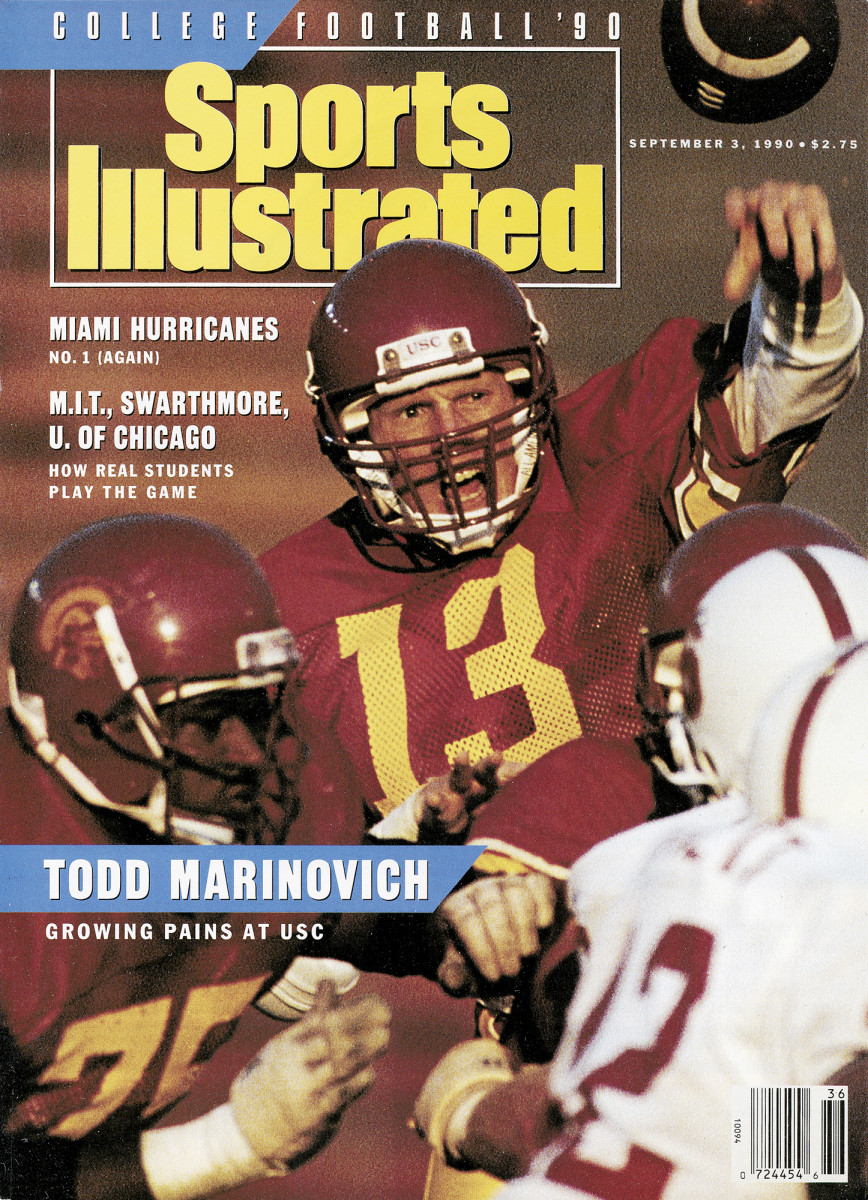
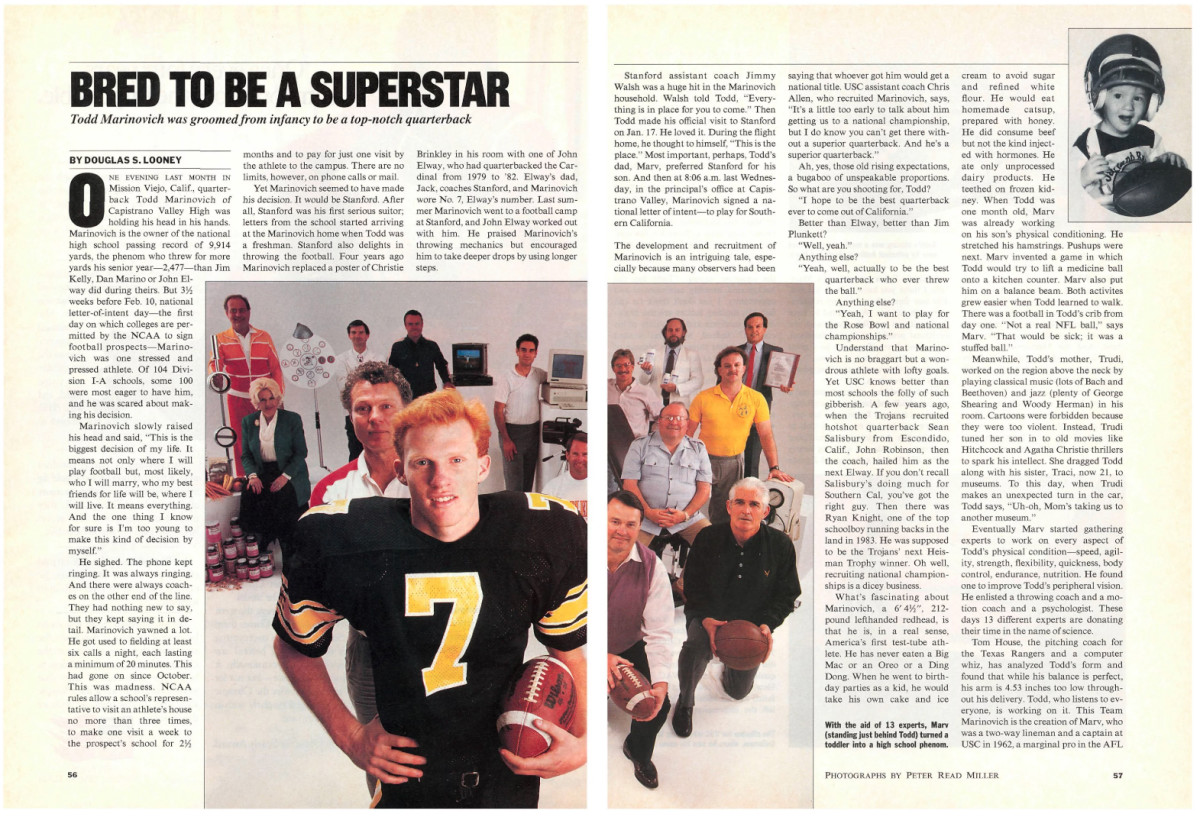
From the SI Vault, Feb. 22, 1988: Bred to be a Superstar
Marv said he tried to create "the perfect environment" for "the healthiest possible child." Todd, then 18, gushed about how well it worked, telling SI, "There is no way somebody could be made to do all this stuff. I choose to do it." He did it, he said, because his goal was "actually to be the best quarterback who ever threw the ball." He told The New York Times, "I can remember asking my dad: 'What can I do to improve my performance? What would be the plan?'"
Todd became a USC starter and, in 1991, a Los Angeles Raiders first-round pick, rising just high enough for the country to notice his fall into drug addiction. Todd was arrested so often that once, when he returned to the James A. Musick minimum-security facility in Irvine, Calif., guards played the Welcome Back, Kotter theme song over the loudspeakers. Then they played the Raiders' march. Todd became a joke, and Marv a cautionary tale.
Well, now: Look at Marv Marinovich over here, sitting on a backyard patio in Mission Viejo, Calif. It is September 2018. He is 79. A woman hands him a Jamba Juice mixed-fruit smoothie and says, "You look good. Clean and fresh. Awesome!"
Then she asks, "What's my name? Do you know me?"
Eight seconds pass. Finally, Marv says, "Traci ... Catherine ... Marinovich."
He is correct. Traci is his oldest child. On her last visit, he thought she was his sister.
Marv, who spent most of his life avoiding fatty meats and refined sugars and processed anything, has Alzheimer's.
"You are on it today!" Traci says. "Woo! That's nice!"
She does not want to be here. It's not just because he is a shadow of a man now. She remembers the man he was. All he seemed to care about was Todd. He neglected his daughter on a good day and insulted her on a bad one.
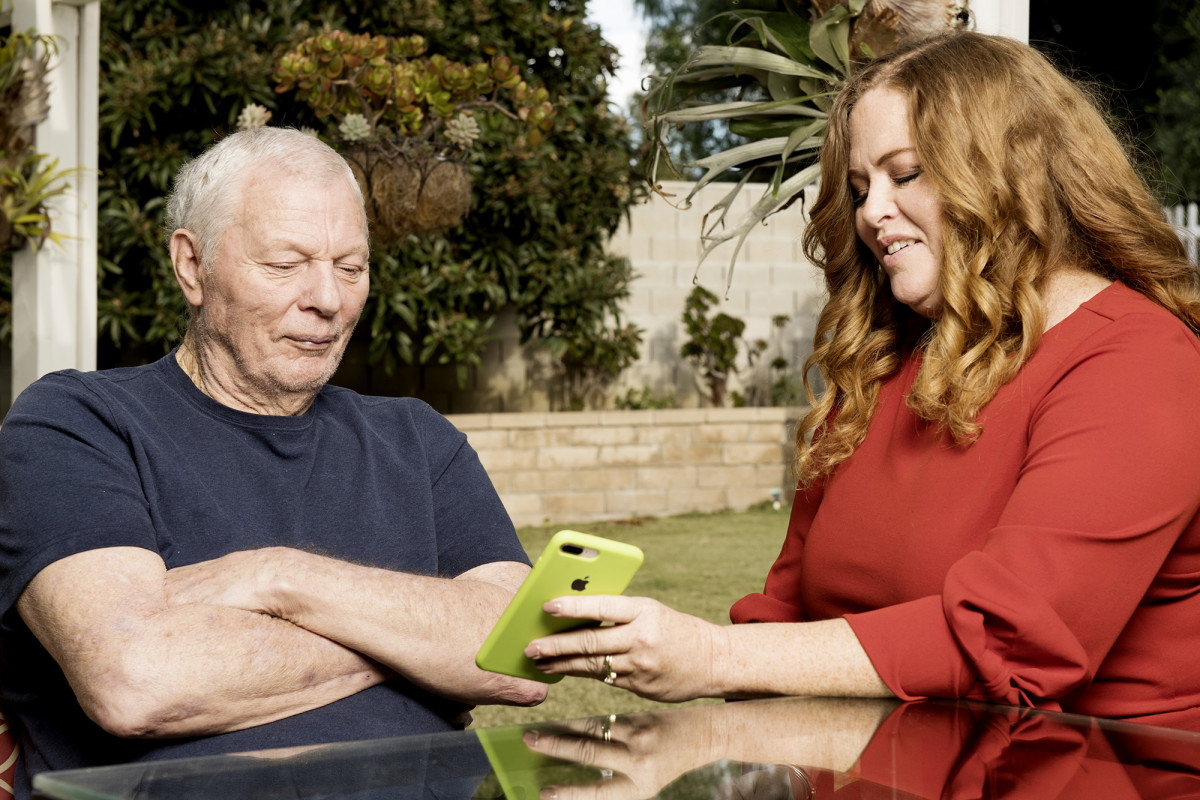
When Traci got married, in 1988, Marv refused to give her away, and he almost skipped the wedding. His objection: Her fiancé, Rick Grove, was not athletic enough. Marv wouldn't even shake his hand. "He is going to be a sad old man," Traci said then, but that is easy to say about a healthy young man. It's not so easy when he actually becomes a sad old man.
Traci has brought her father a watermelon, his favorite fruit. Marv taps it to make sure that it is ripe.
"I know how to choose 'em!" she says.
Marv takes a sip of the smoothie. Traci thinks her father loves her. But she says she "can count on one hand things that he's actually done for me." So why does she visit him every couple of weeks? It's not guilt. Duty, perhaps. This is the last obligation of an unspoken contract: He helped create her at the beginning, so she helps take care of him at the end.
She pulls out her phone and scrolls through old family photos. She does this on every visit. It gives them something to discuss.
She shows her father a photo.
"Who are those two people?" she asks.
Seven seconds pass. Nothing.
"Do you know who they are?"
"No," Marv says.
It is a picture of Marv and Todd.
The end shrinks us all. When Marv wants to stand, he needs assistance. When he opens his mouth, only a few words tumble out. He cannot bathe himself. He has no control over when or where he defecates. Sometimes he sits on a couch for hours listening to jazz or 1940s music from his childhood. His primary caregiver at the assisted-living facility, Leo Cambio, says, "If you leave him in one place, he'll stay there forever."
His decline started in earnest a decade ago. Todd knew something was wrong when Marv started calling him Todd. For years they had called each other by the nickname Buzzy. And for years Todd had carried heavy guilt—his father had done everything imaginable to help him succeed, and Todd had blown it all. Marv's disease affected Todd in a most unexpected way: As Marv's memories disappeared, some of Todd's came back. Marv had been such an overwhelming presence in Todd's life that he needed to be diminished before his son could truly face him. Todd says it "wasn't a conscious decision. But it sure makes f------ sense."
Since 2015, Todd has gone to trauma therapy, group therapy and individual therapy. He needed all of it because his entire life was built on a lie.
Todd remembers the sound of teeth falling on the floor. He was in sixth grade, playing one-on-one basketball against an 11th-grader at a community center in Huntington Beach, Calif. The older kid was banging pretty hard.
"You're not going to let him get away with it!" Marv barked.
"Get away with what?" the other kid said.
Marv ordered them to stop playing and start fighting. Todd was not shocked. He had been boxing, against his wishes, since elementary school; Marv enjoyed putting kids in the ring with his son.
This time Todd got in a few jabs. A crowd started watching. A bystander stepped in with a racquetball racket to break it up, but Marv did not believe in breaking up fights. He believed in winning them.
"You better back the f--- up!" Marv yelled.
The guy said, "What are you going to do, old man?"
So Marv knocked his teeth out.
Todd remembers, out of the corner of his eye, seeing those teeth flying, "like a cartoon," and he remembers the sound of them falling, and he remembers Marv grabbing him and running to their Volkswagen together and speeding away, and ... God, car rides were excruciating. If somebody cut them off, Marv would scream, and Todd would pray the other driver did not pull over, because Marv might beat the crap out of the guy. Give Marv the finger and Marv would break it.
Marv could get into a fistfight anywhere. Marv beat up people at Todd's football, basketball and baseball games. Marv threw a female neighbor over a fence. Marv once picked up his wife, Trudi, Todd's mom, and threw her across a room onto a dining room table.
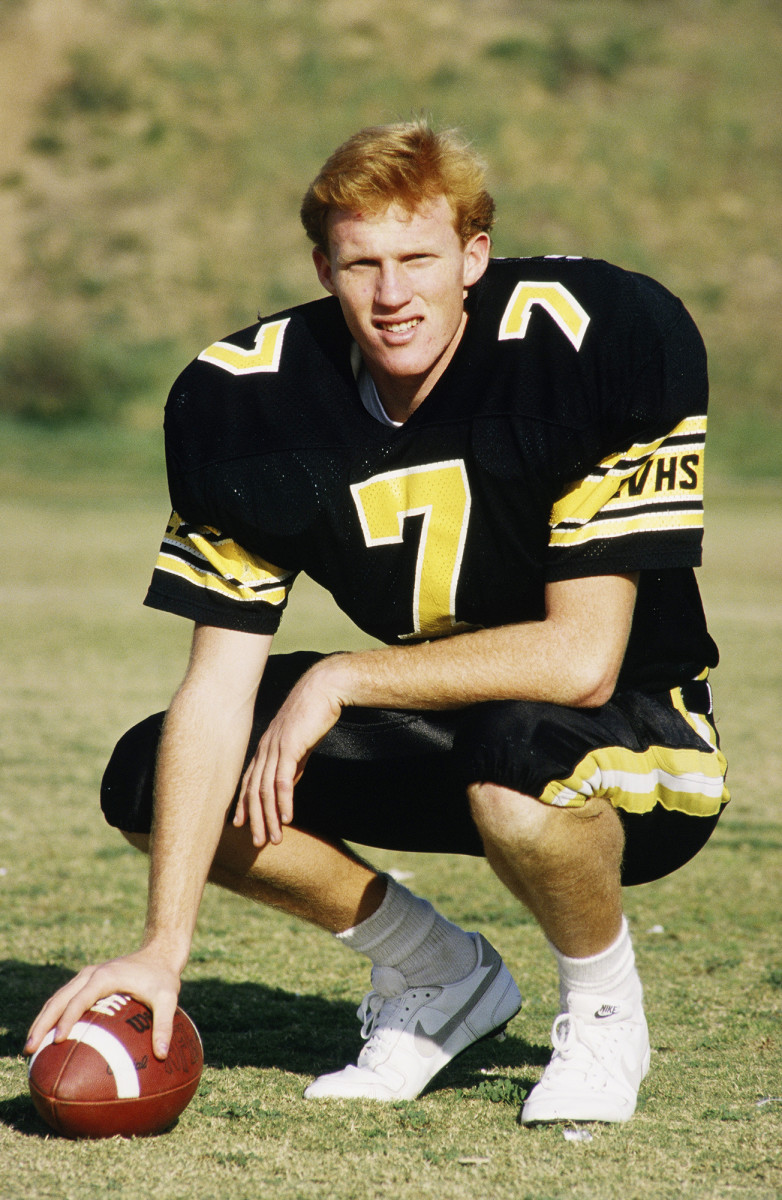
Perfect environment? Heading back from games and practices, with Marv driving and Todd riding shotgun, Marv would hit his son's face repeatedly—with an open hand, so he did not injure his own knuckles. The next morning, when Trudi climbed in the driver's seat, she could barely see through the windshield because it was covered with Marv's dried spit.
"A raging beast," Todd now says of his father, but he didn't dare say it then. He never told his mother or his sister that Marv hit him. Instead, he surveyed his childhood home, the fury of his father and the worries of his mother and the emotional abandonment of his sister, and Todd convinced himself, before he even turned 10: The only one who can fix this is me. I just have to play better.
Todd remembers when he started lying. He was in elementary school. His maternal grandparents would feed him Big Macs and Oreos and Ding Dogs and other junk food. At lunchtime he traded fruit for Cheetos whenever he could. On Halloween, Marv stayed home while his kids went trick-or-treating. Todd lied about eating the candy. He was terrified of what Marv would do if he found out.
Todd was too young to understand that a lie is not an object at rest. A lie is a liquid that oozes everywhere: first around the neighborhood, and then onto the pages of the local newspaper and into every mailbox that receives Sports Illustrated. He says now, "I had no idea what a freak show they would make the whole diet thing." But he felt he had no choice.
"I was in fear," he says. "Am I going to tell the truth to a writer and go home and deal with Marv? That's a f------ no-brainer."
Todd's lie about sticking to his dad's diet led to a bigger lie: that Marv and Todd were a team ... partners ... doing what they both wanted—that Todd wanted the "perfect environment" to become a world-class quarterback.
That lie was an ocean. It was such a constant in Todd's life that Todd was drowning and never realized he was wet. There were truths inside the lie. He wanted to play football but hated the relentless training. He wanted time with his dad but dreaded the abuse. He clung to those truths and tried to ride the lie to safety.
"O.K.," Traci tells Marv, "this is one of my all-time favorite pictures."
She hands him the phone.
"That is your first wife, my mother," she says. "Your senior year at USC, right after the senior year awards banquet ... see this trophy?"
Marv looks at the photo. The trophy meant so much to him that it survived 10 moves over more than 50 years; he kept it in four houses, three apartments, a condo and a townhome, as far east as St. Louis and as far west as Hawaii. It finally broke a year or two ago, at an assisted-living facility.
If Marv recognizes it now, he doesn't say.
Traci says, "That is the one that says USC MOST INSPIRATIONAL PLAYER, voted by your teammates."
Todd remembers being a kid and looking at Marv and thinking, My father is a good person.
He had reasons to believe that. When Marv was a St. Louis Cardinals assistant, he set up a special light system so the league's only deaf player, Bonnie Sloan, could read his lips in film sessions. As a performance trainer in the 1970s and '80s he treated black athletes like family, even inviting some of the players on his own family's vacations. In an era when Title IX was anathema to many men in athletics, Marv preferred working with girls. He said they had smaller egos and tried harder.
Yes: If you were a progressive parent of a feisty young girl in the '80s, you wanted to take her to Marv.
He might not even charge you. Todd saw it all the time. Marv would train kids for free as long as they worked. This is what people got so wrong about Marv: They thought he was the most extreme stage parent, determined to create an NFL star. And Todd would think: No, they have it wrong. It is one point upon which everybody in the family agrees.
MARV KNEW ONE WAY TO LIVE, THROUGH SPORTS, AND HIS SON WOULD COMMIT TO THAT WAY COMPLETELY. ALL MARV WANTED TO MOLD WAS ATHLETES, AND TODD WAS HIS FAVORITE PIECE OF CLAY.
The truth: Marv wasn't obsessed with Todd's being a first-round pick, or even a pro. He didn't even really care if Todd played quarterback. Marv knew one way to live, through sports, and his son would commit to that way completely. Nothing else was acceptable. His interest was not financial. It was scientific. Art runs through the family DNA—Marv's grandmother Nell Brink was a painter, and Todd still believes Marv "could have been a world-renowned sculptor, without a doubt, if that's what he wanted to do." But all Marv wanted to mold was athletes, and Todd was his favorite piece of clay.
So if Marv was a good person, selflessly devoted to his pupils and far more devoted to Todd than to anybody else, then when Marv erupted, Todd could only logically blame one person: Todd.
Traci shows Marv more pictures.
"Look at that one," she says. "You're handsome there!"
For a long time, she rarely saw him. They only talked two or three times a year. Well, why would they? He had always treated her as an afterthought. Marv married Trudi, a swimmer whose brother was a USC quarterback, partly to create an athletic family. ("It's very sick," Traci says. "I'm trying to tell you the facts.") Traci played golf, and basketball and ran track in high school, but she wasn't his kind of athlete, totally devoted.
Marv could be warm toward Traci, and he had a loving nickname for her (Tootsie Wootsie), but he never tried to get close. Everybody in her immediate family went to USC, but only Traci graduated. She was the flag-bearer for the School of Education. Marv skipped the ceremony.
Even as he faded, and the sharp edges of his personality dulled, there were still signs of the old Marv. He'd sit on her couch and say, "You're gaining a lot of weight there, Tootsie Wootsie."
Four years ago she went to visit her father for the first time in years; he was living in Santa Cruz, and she happened to be in Northern California for work. Marv's brother, Gary, told her, "Traci, he can't remember anything." Traci thought, I really don't want to take care of him. But she knew she would.
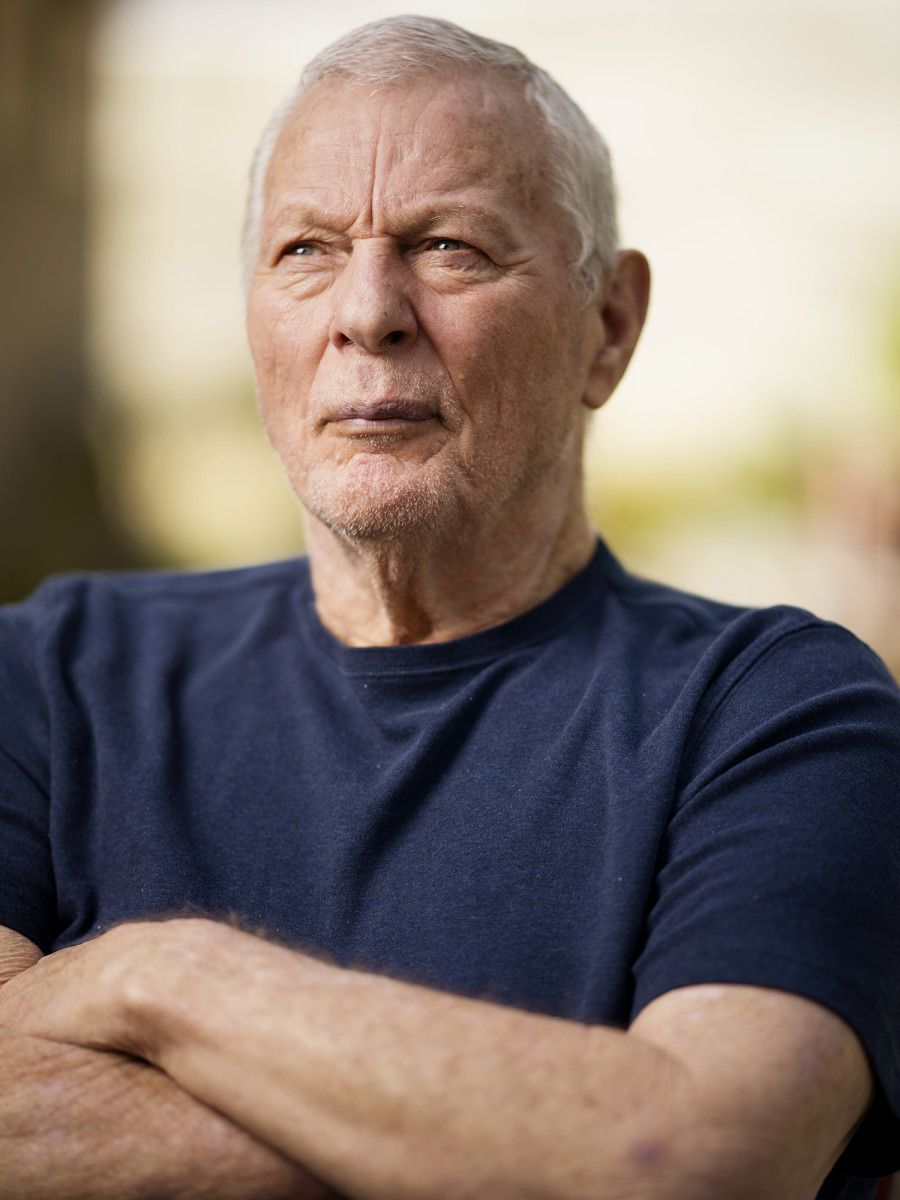
"My brother can't do this," she says. "He can't wait in the Social Security office. He's been coddled his whole life. He doesn't know how to do these things."
Coddled. Now there is a word you don't hear often about Todd Marinovich. But try to see what Traci saw: Todd never had to do chores. Traci did. When Todd switched high schools, the family moved closer to his new one, leaving Traci with a two-hour bus commute to her old one. Todd never had a job. Traci worked at a crafts shop and later at Ruby's Diner. Todd got a football scholarship. Traci still pays $400 a month in student debt.
It's actually not hard to see Todd as coddled. You just have to dip your toes in the lie. You have to believe, as Traci did, that Todd and Marv were a team ... partners ... doing what they both wanted....
The deeper the lie got, and the wider it spread, the harder Todd swam. I am the only one who can fix this. At Marv's behest, Todd transferred from Mater Dei to Capistrano Valley High and became a top recruit. His big plan to please Marv by playing better was not working—he kept playing better and Marv was never pleased. So Todd adjusted his plans. He decided he just had to make it through high school.
Marv and Trudi split up in 1985. During Todd's senior year at Capo Valley, Marv and his new partner, Jan, had a son. They named him Mikhail. Marv would do with him as he had with Todd. Todd told The Seattle Times, "I think it's great. Mikhail is very lucky. I know I couldn't have done what I've done without all the help my father gave me."
The truth was that Todd worried for Mikhail. Todd, a natural introvert, had started smoking pot to ease his anxiety in social settings. When he left for USC, he thought: Finally. I escaped.
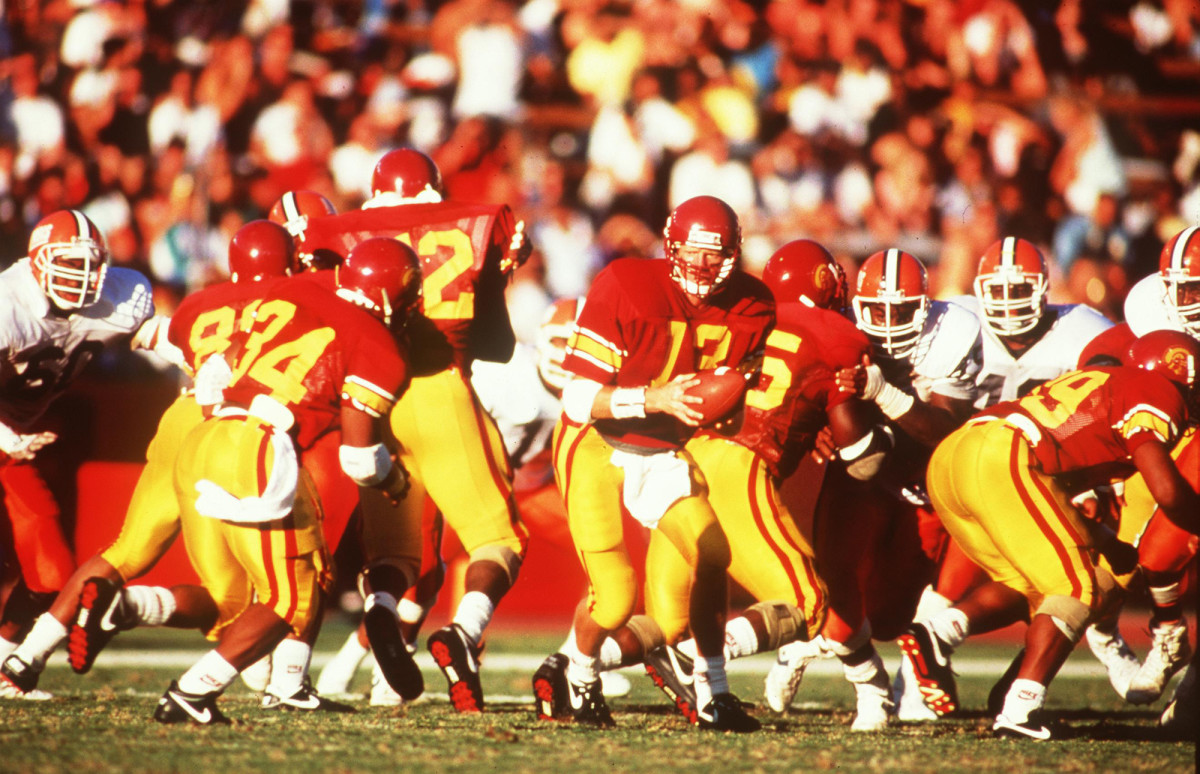
Escaped what, though? Marv went to every Trojans practice. Todd earned the starting job as a redshirt freshman, but the more successful he was, the more people paid attention, and people scared him. Fear had become so ingrained in him that he needed it to feel alive. Without the fear, what was he? All the way through college, he found himself coasting at the start of games, emotionally detached, until a defender crunched him. The pain reminded him he was in a fight.
After that first hit, he played his ass off.
Then, that night, he partied his ass off.
Then, the next morning, he woke up with the fear again.
He was overwhelmed by the challenge of being Todd Marinovich. "I didn't have the tools," he says. "I did not know how." He had been trained for one thing: football. He hated classes. He had no concept of personal responsibility. He had been coached more than anybody else on the team, since birth, yet he was the definition of uncoachable.
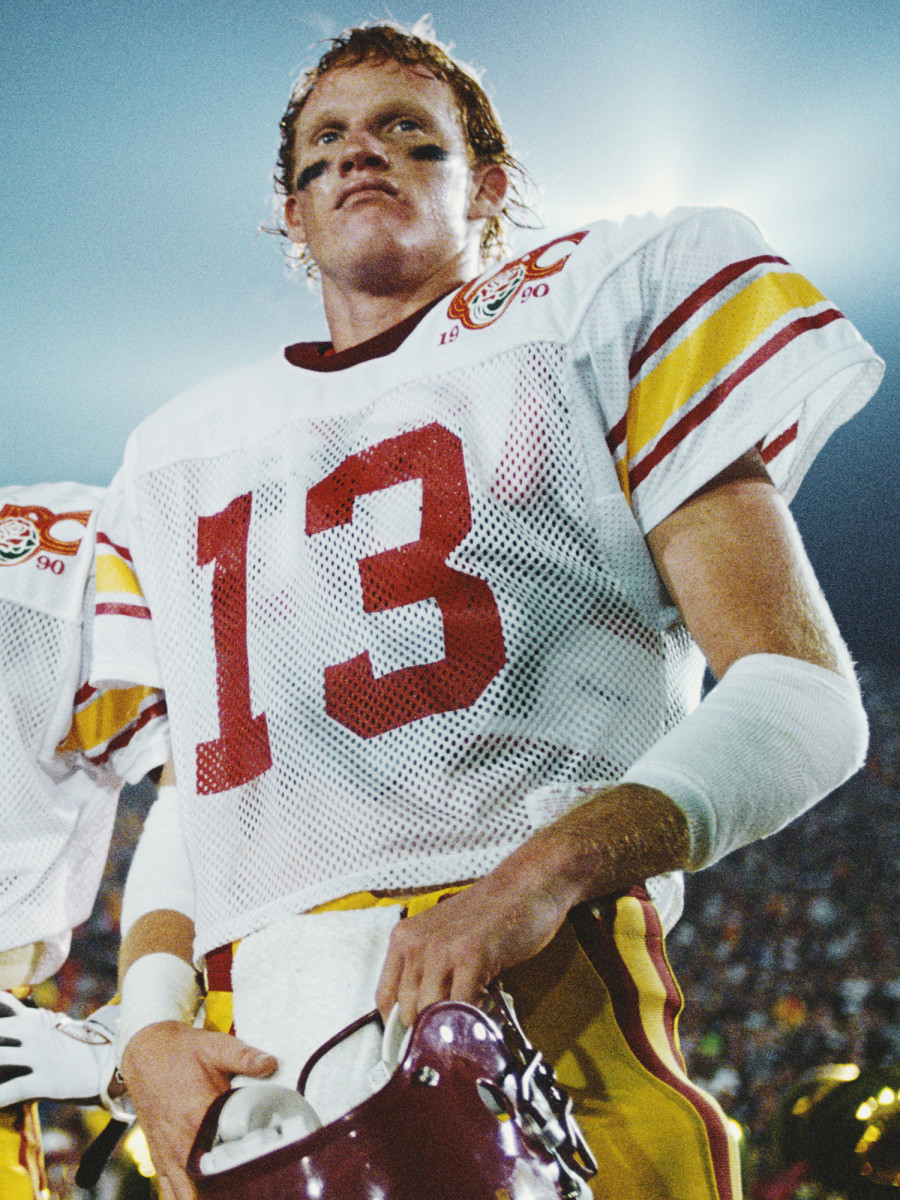
Todd remembers sitting in USC coach Larry Smith's office. For a time, theirs was the most discussed coach-player squabble in America: Todd, the uncontrollable child prodigy, whose drug use was an open secret on campus, against Smith, the stern Bo Schembechler protégé.
Smith was no expert on drugs, but they were invading his professional and personal lives. When he took the USC job his daughter, Ali, was a sophomore in high school, and she began drinking and smoking pot. Smith's daughter and his quarterback were both sinking into addiction, and he couldn't stop either.
But when Todd looked at Larry, he didn't see Ali Smith's father. He didn't even see the Trojans' coach. He saw Marv. Every authority figure was Marv. Later, he would get drafted by the Raiders, his dad's old team and Todd would look at owner Al Davis and see Marv, look at coach Art Shell and see Marv, and eventually he would look at police officers and prison guards and parole officers and see Marv, Marv, Marv....
"Todd," Smith said in his office, "what do you want to do?"
They were discussing academics.
"I want to do art," Todd said.
"Then why don't you do art?" Smith asked.
Todd became a fine arts major and loved it. For the first time, he enjoyed school. He found photo-realism banal; the whole point of painting was to create, not replicate. Todd was drawn to paintings that burst with color, that did not seem precise or carefully planned, that looked like they just flowed spontaneously out of the artist.
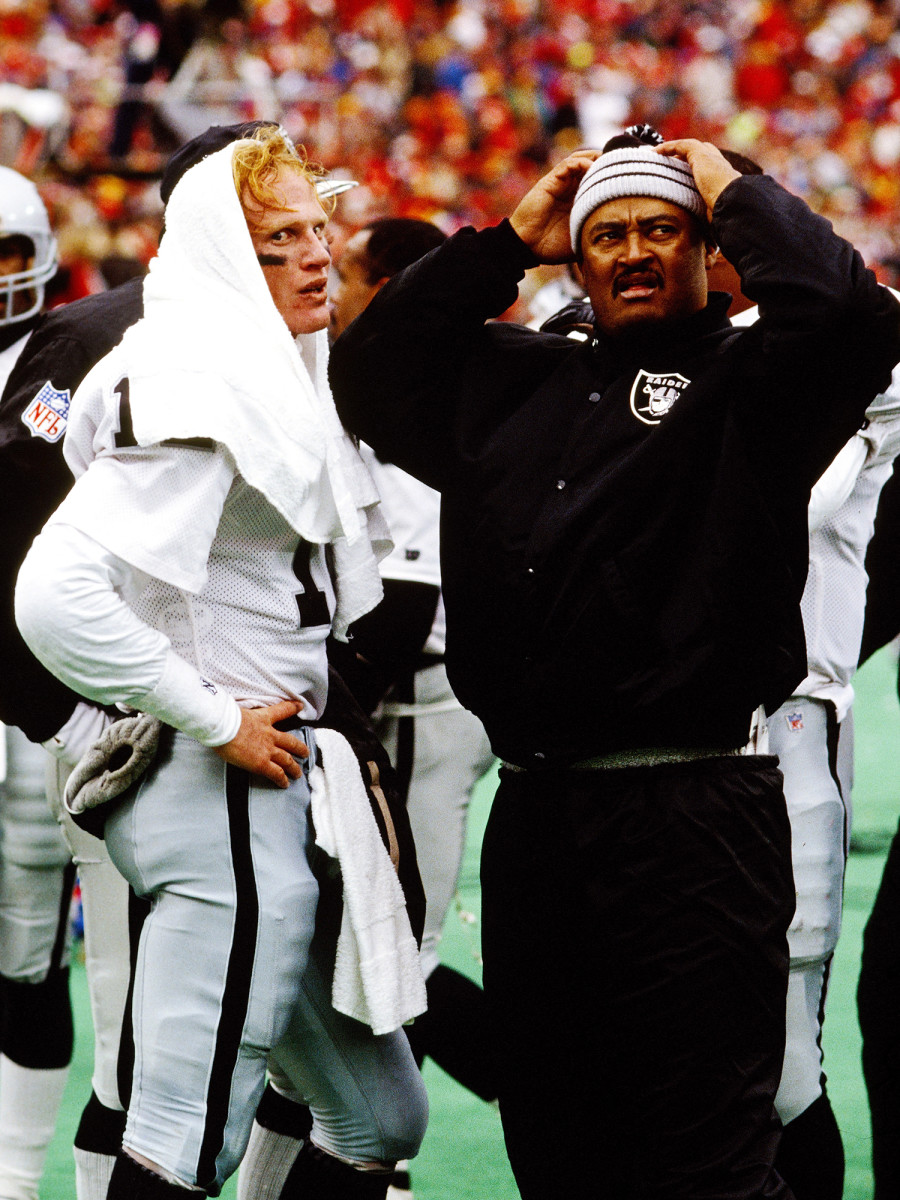
This is who he was. But it was not who he was raised to be. Todd kept acting like he and his father were a team ... partners ... doing what they both wanted. He repeated the lie so often that it came more easily than telling the truth. It made sense to him until he joined the Raiders, with a $2.25 million contract, the culmination of his precise and carefully planned athletic career, and he felt empty.
"They say in our society, If you reach this, you'll be happy," Todd says. "I was miserable, but couldn't tell you why. Everything around me is falling apart. I have a bank account, millions of dollars, and that's not making it better. What the f--- is wrong with me?"
Traci turns to Cambio.
"Have you been able to try any of the art?" she asks. She wants Marv to draw or paint, to keep his brain's embers burning a little longer.
"We've even put little items in front of him," Cambio says. "Perhaps a pen. He won't do anything. We've tried morning, nights, depending on the day. He just won't do it."
Todd remembers when he decided to get clean. He had repeatedly failed in his attempts at adulthood. His first fiancée left when she saw him pull out a crack pipe on his birthday. Then Todd met Alix Bambas in drug court, married her, and in 2009, she gave birth to their son, Baron.
In the past Todd only went to rehab because he had been sent—first by the Raiders, then by the legal system. He never tried on his own. Now was the time—for Baron.
He was startled to find he couldn't get sober, or when he did, he couldn't stay sober. Staying sober meant living a normal, responsible life, and Todd says, "I missed Human Being 101. I was anesthetizing, covering up the very vitals of me being human."
In 2010, Todd's best childhood friend, Marco (Coski) Forster, died of a heroin overdose. Forster had been clean for nine years—so much longer than Todd ever was—and drugs still got him. Todd was a wreck. Forget about getting sober himself. He lost his faith in the entire concept of sobriety.
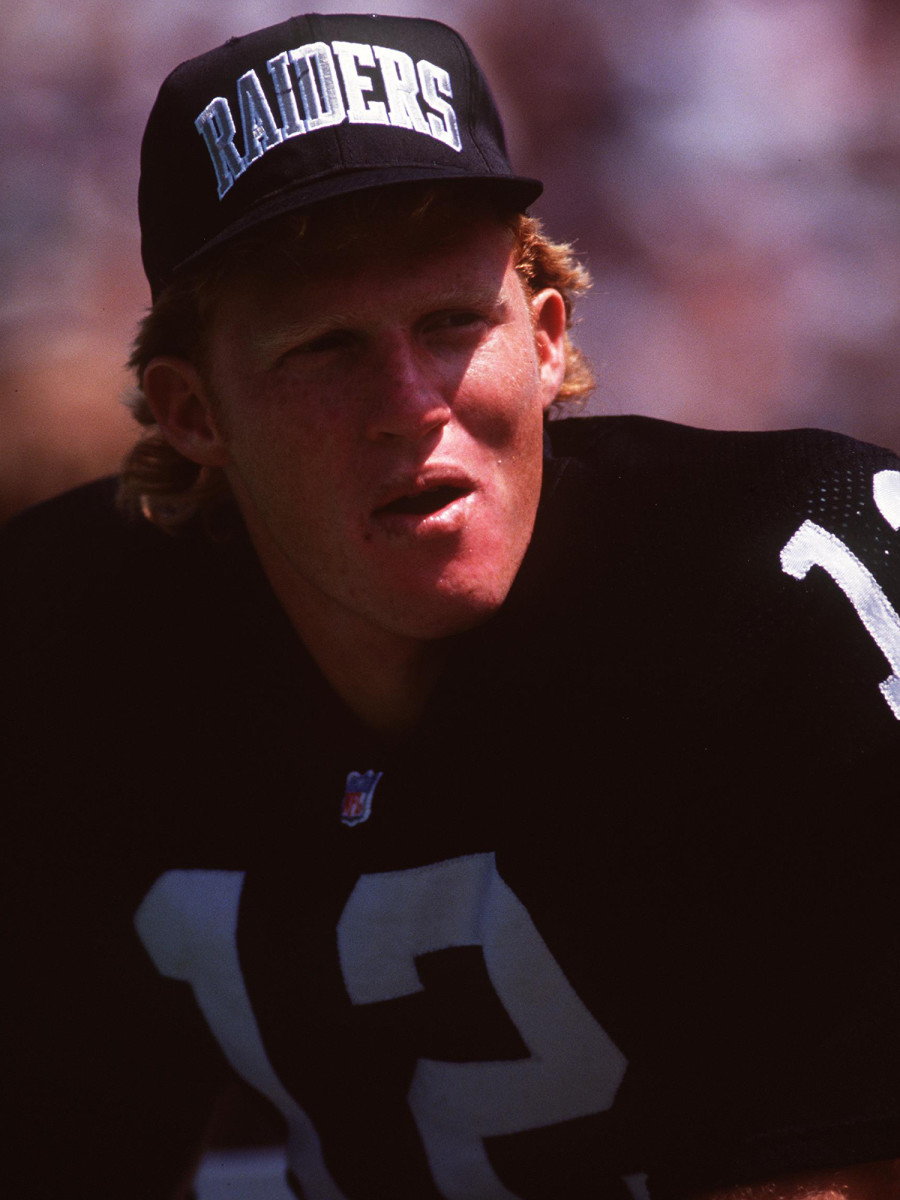
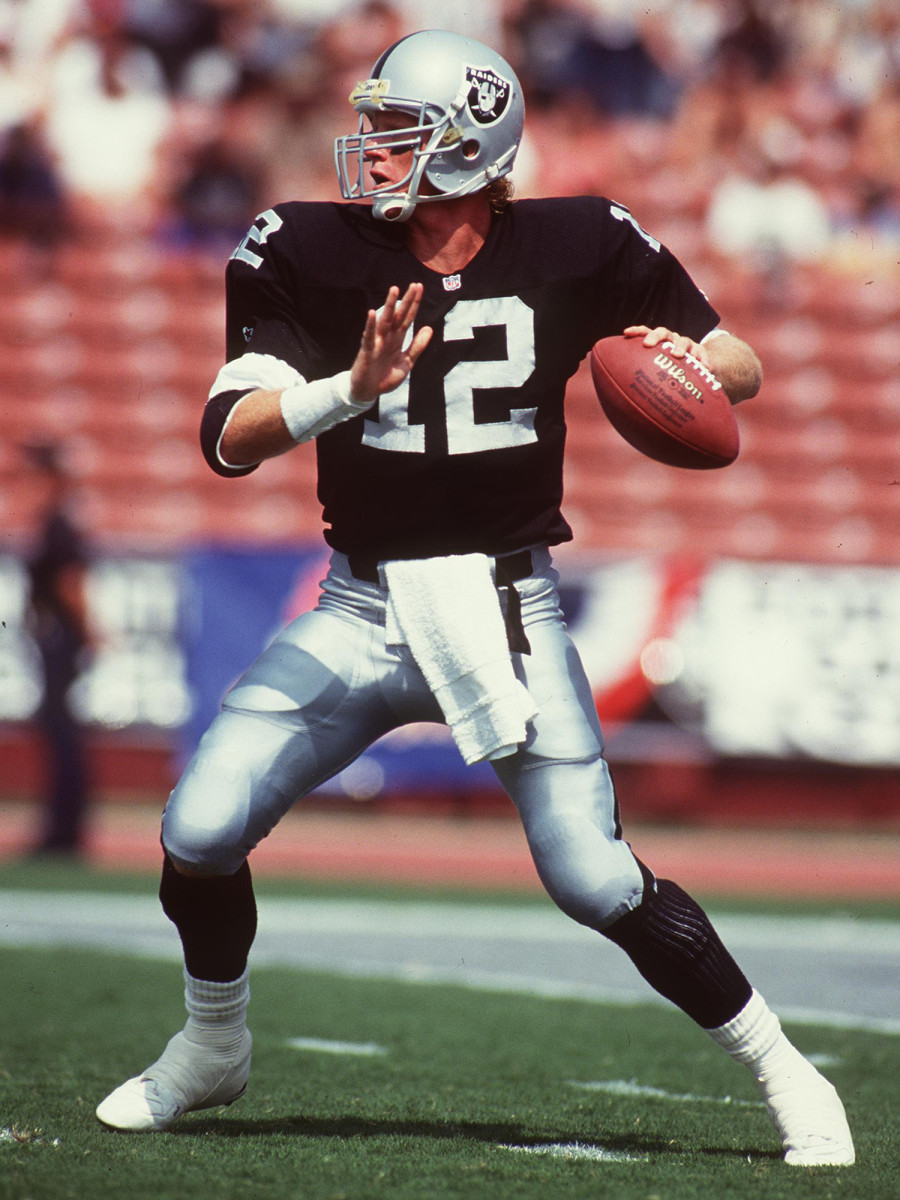
The next year, on the one-year anniversary of Forster's death, Alix gave birth to a girl. They named her Coski, but call her Coco. Now Todd had two reasons to get clean, and still he couldn't do it.
Todd had tried talking to his father about his childhood once, a few years earlier. Marv sobbed and said he did not recall what Todd recalled. Then he said, "I'll check with your sister." Traci backed up Todd. It was the last time Todd brought it up with Marv, because what was the point?
He and Marv were a team ... partners ... doing what they both wanted. Todd screwed it all up by taking drugs.
It is the summer of 2017. Todd has toted his father around for years, figuratively, and now he is doing it physically, moving him from one facility to another to give him care that the family cannot really afford.
Even Marv's best quality, his apathy about money, is now hurting his children. Marv gets $1,260.20 in Social Security and $44.05 per month in pension from the NFL. (He played one game, for the Raiders, in 1965.) The Marinoviches get some help from a few athletes who have trained with Marv, including former Steelers All-Pro safety Troy Polamalu. But paying bills is a monthly struggle.
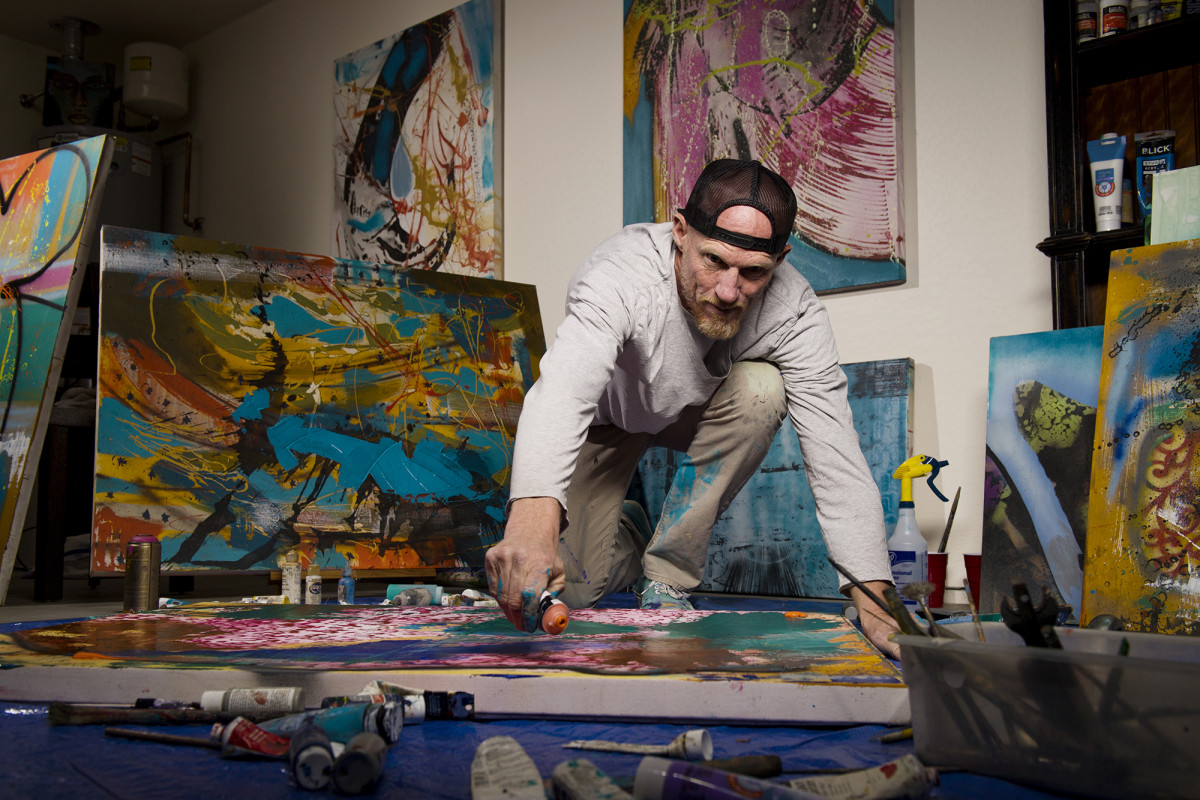
Todd is trying to make a living as an artist, to be true to himself. But how? Don't responsible adults take care of their ailing parents? Todd does some commissioned work for clients, but it stirs old feelings of needing to please somebody else: "I can't say no to this person because I need to pay this bill."
This is real life. But Todd Marinovich is not good at real life. He is in his late 40s, divorced with two kids. He and Alix (who did not respond to an interview request) are both struggling with addiction; Baron and Coco mostly live with Alix's parents. Todd is continually vexed by everyday responsibilities that most people master in their 20s. Marv needs somebody to manage prescriptions, deal with insurance companies and pay bills on time. Todd is a lousy candidate, Mikhail is in the Bay Area and hasn't seen Marv in years, and Traci is tired of doing it.
Todd starts working as a volunteer coach for the SoCal Coyotes, a semipro football team, but the starting quarterback gets hurt. Soon Todd is wearing a helmet. The Robo QB is back! Traci has no patience for it. She will say later: "I ignored that whole thing. Who cares? What is he doing? Get a real job."
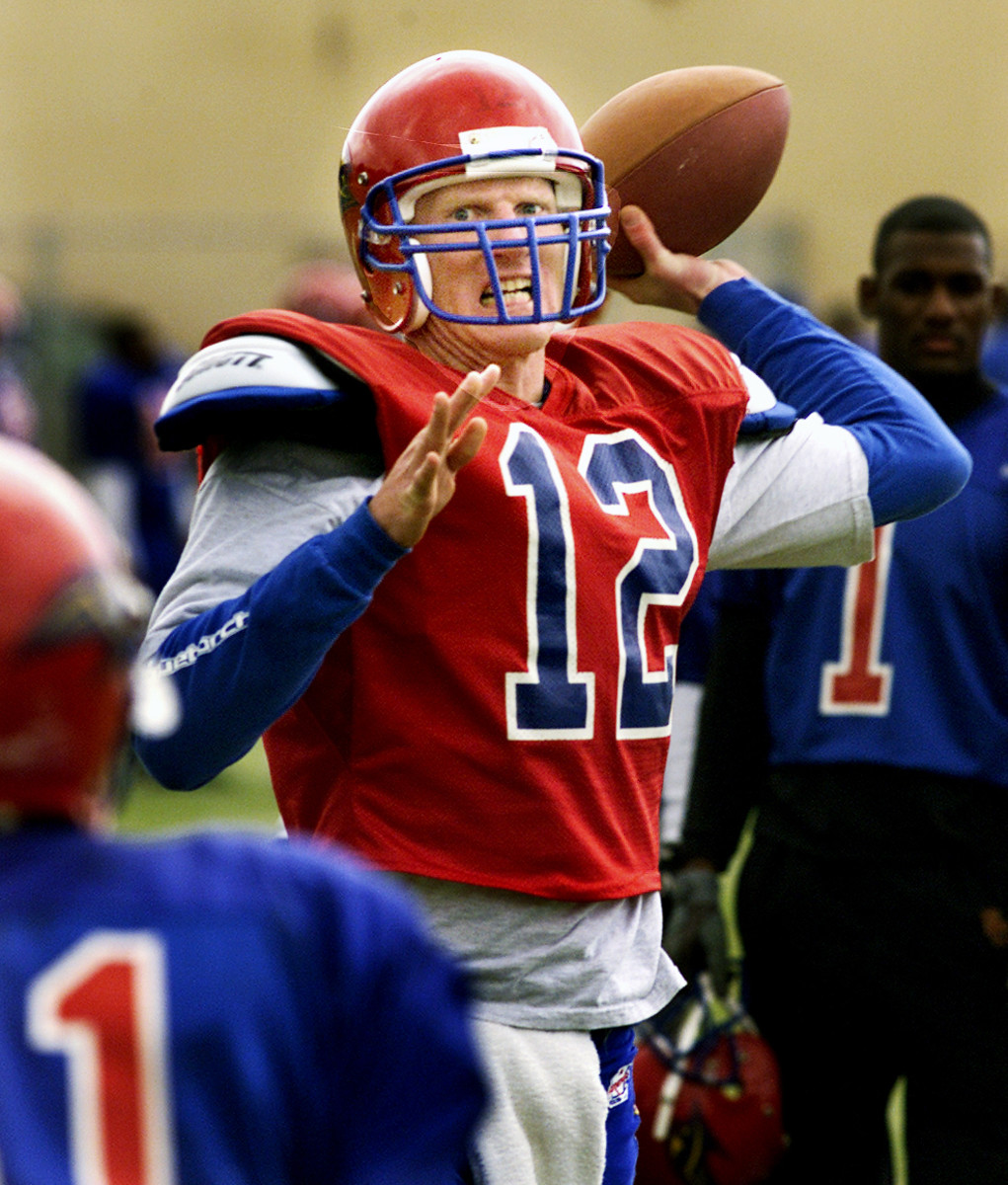
This is what he is doing: Testing himself. Todd thinks, I've never played sober before. Of course, he has played games sober. But he has not been sober for a season since he turned 15. Now he wants to answer a question he was not even equipped to ask before: Do I like football?
Marv is in the stands, but he is not the hovering Marv of Todd's youth; he is diminished, addled by his disease. This Marv does not scare Todd. When Todd looks to the sideline, he is no longer fooled. He sees his coaches' faces, not Marv's.
In the first game he ever played for himself, 48-year-old Todd Marinovich throws seven touchdown passes. His team wins 73--0. It is semipro ball. He knows that. But it reminds him of what he has always known: He could have had a hell of a career if he had lived a different life.
And now he doesn't care anymore. He had fun. There is his answer: He likes football. He quits after one game and takes Baron and Coco on vacation to southern Oregon. Todd finds himself out of nicotine juice to vape, so he stops in a shop, and look what sneaks up on him: Weed for sale.
He did not expect this. But it's Oregon in 2017. Recreational marijuana is legal. He thinks: Well, it's right here.
But he knows: Don't do it.
Do ... not ... do ... it.
He knows the drugs will not lead to happiness. He stopped kidding himself long ago. Even when he is his palest, weakest, most desperate and impulsive version of himself, he knows: Drugs will not work. Thirty years ago, he thought getting high was fun, but now he knows better. If he buys the pot, his body will demand something stronger, and it will be agony, and maybe he will get arrested and make headlines and sneak into our consciousness again, and we will laugh at him and judge his father again. If he buys the pot, more humiliation awaits, more pain, more separation from his family and his true self....
He buys the pot.
Addiction is such a snake.
Todd smokes the pot, and immediately, he feels disconnected from the world.
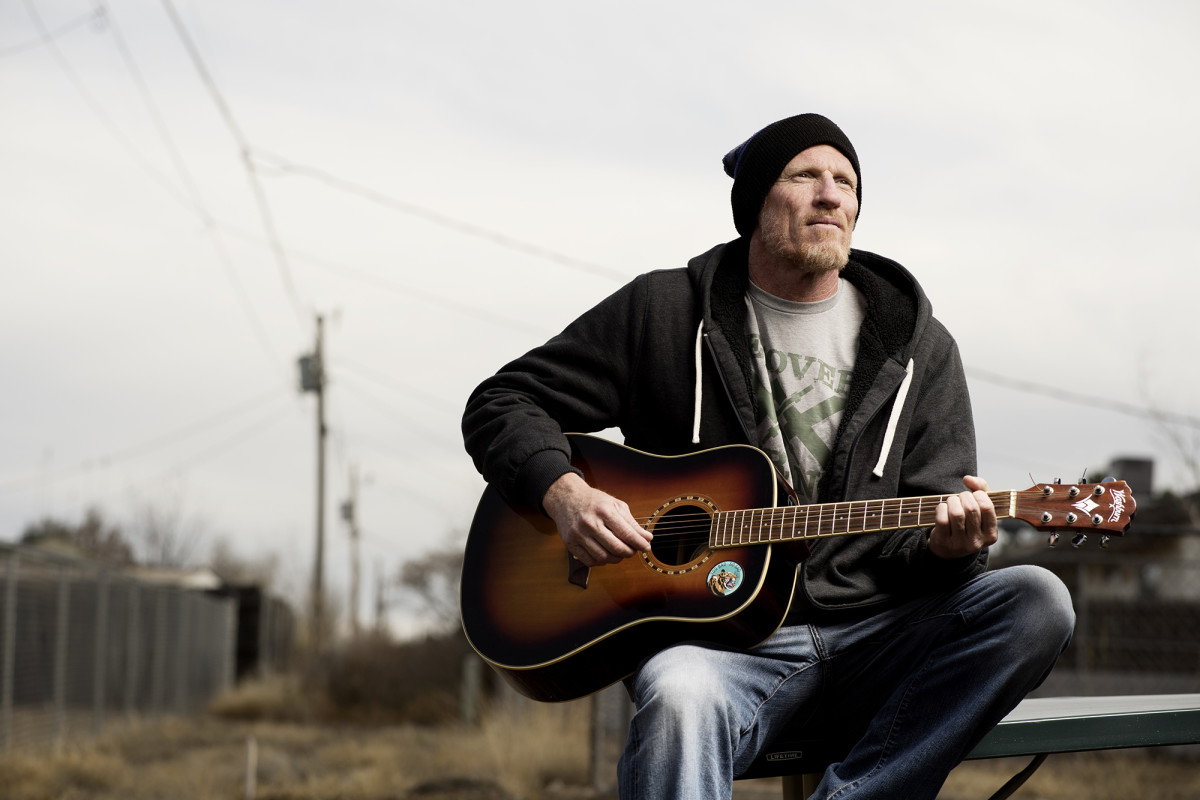
When he returns to Orange County with his kids, he has a marijuana habit again, and after a while pot is not enough. Addiction has been his companion for most of his life, and as with any other companion, he knows it intimately: its touch, its moods, the pain it can cause and the pull it can exert. He knows how to anesthetize. First he finds some speed. Then, he says, "I get too worked up with speed, I gotta bring it down with a little smoking of heroin, now I'm done. That's chemistry."
He has the perverse discipline of an addict: He smokes heroin, but he won't shoot it, because he believes that might kill him, the way it killed Forster. And if it doesn't, he'll wish it had.
By now, Todd is self-aware enough to know why he is relapsing. He is sad about his father's deterioration, irritated by some people in his recovery group, suddenly detached from the football team he joined. He feels alone, and when he feels alone, he goes back to where he is most comfortable, even though he knows the comfort will not last.
It does not last this time, either. He is on probation, subject to random drug testing. He takes an oral test, then does something he has never done in this situation before: He tells the truth.
"I'm dirty," he tells his probation officer.
She sends him to a detox center for a week, but on the seventh day he is restless. Baron has his first flag football game of the season. Todd feels guilty about missing it. Don't responsible parents go to their kids' games? He leaves detox a day early, a childish execution of an adult thought. The violation sends him back to jail for 45 days. But when he gets out, he does something else he has never done, something else that would have been impossible just a few years earlier. He asks himself: Why do I visit my dad so much?
Todd is so used to living for Marv that he has been doing it instinctively. But Marv won't even remember he was there. Every visit is just a way to revisit the lie: They were a team ... partners ... doing what they both wanted. To hell with that. Todd will do what Todd wants. He will give himself a chance.
Todd walks along a street in Costa Mesa in the summer of 2018, just another dude in a Golden State Warriors shirt, vaping nicotine and looking for a Starbucks.
He has spent the last few months wading through the dishonesty that came before, and gosh, there was a lot of it. When Todd was 40, Esquire quoted him telling Marv, "Someday people will realize what a genius you are." The next year Todd told documentarians for ESPN's The Marinovich Project that Marv "loved me when I didn't love myself" and "I never really blamed my dad for any of my life's adversities" and "as I got older, I understood where he was coming from." And then, of course, there were the lies of desperation, an addict's worst sins. He has stolen from everybody in his family, from wallets and purses and anywhere he could find money for his next high.
But this summer, after detaching himself from his father, he finally took a hard, honest look at his upbringing.
He now understands why his NFL career ended the way it did, with just eight appearances over two seasons in L.A. He couldn't walk away from football (who would tell Marv?), but he couldn't stand to stay in the sport, either. So he finished the job he started at USC: He sabotaged his career with drugs. It was his only way to escape from the lie.
Todd has learned a term, performance-based love, to describe the trauma of his youth: "The only time, perceived or real, that I felt loved, is when I was performing, which is super sick." He believes if he had not turned to drugs, he would have killed himself. "No-brainer," he says. "I don't know what else makes sense."
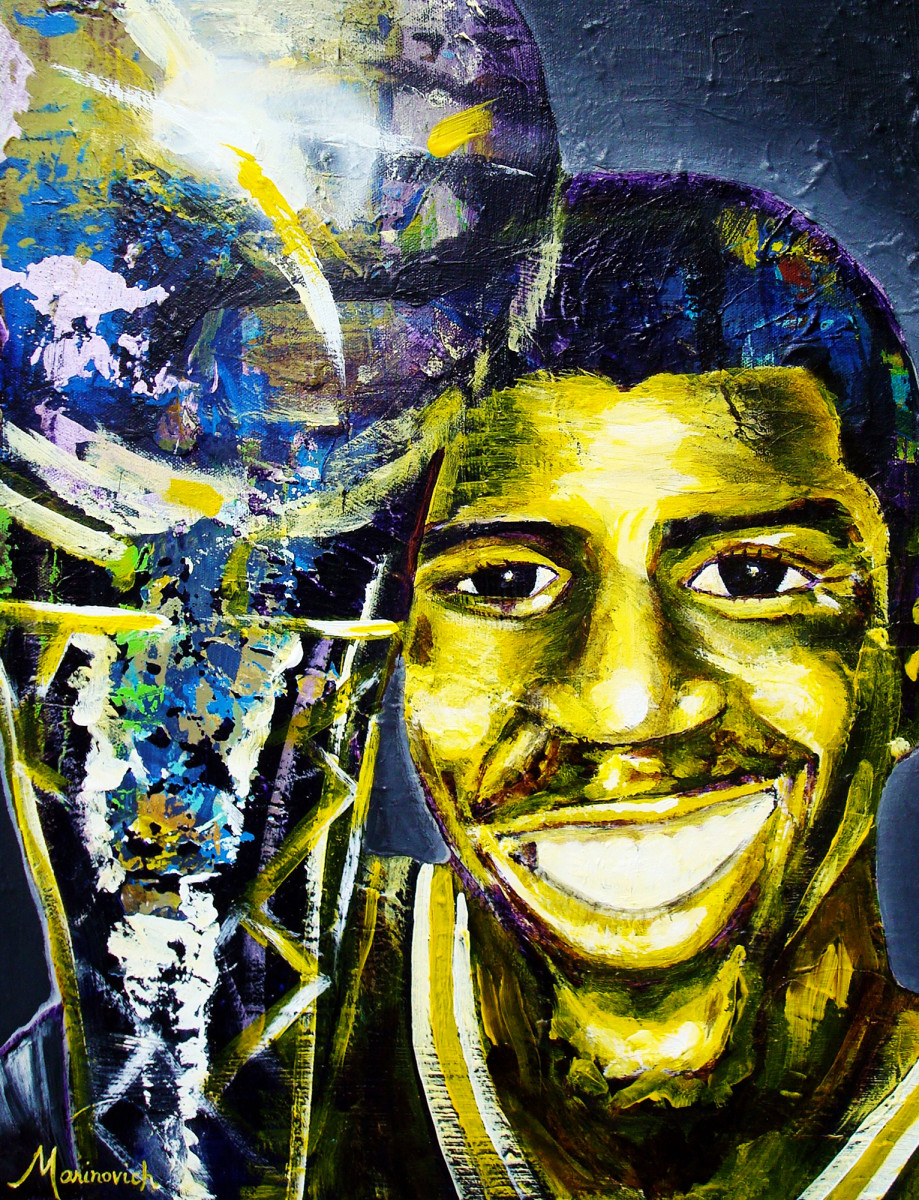
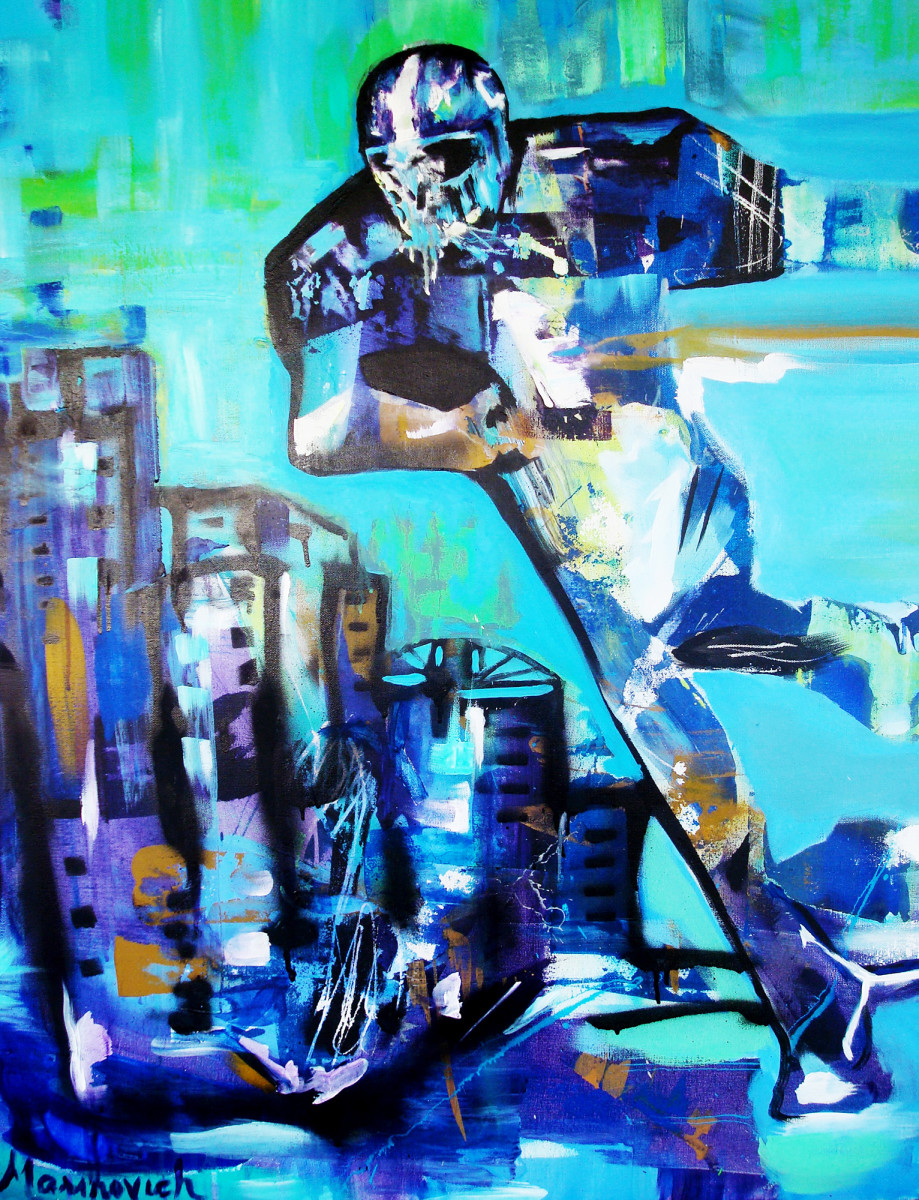
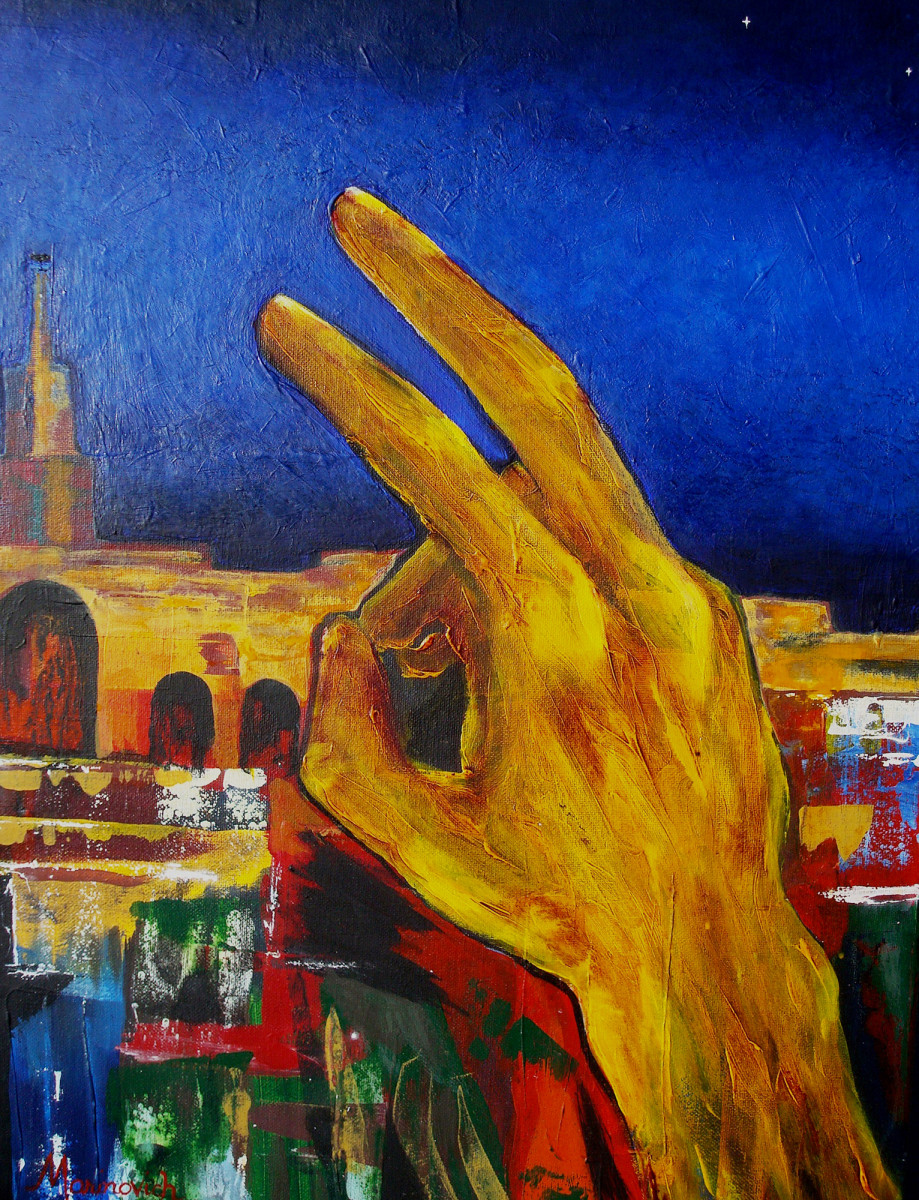
A selection of Marinovich's artwork.
Memories are still returning. Todd hopes that one day he will remember the first time his father hit him. But now he understands the impact of the lie and the ways it wrecked his life. "Here was a light for me," he says. "Get ready."
What he is about to say is hard for even him to believe. But listen: "I created the drama to re-create the feeling that I experienced as a kid," Todd says. "I created it no matter how horrific the feeling. I was addicted to fear and didn't know it!"
How did this happen? Start with the lie: He and Marv were a team ... partners ... doing what they both wanted. The lie was integral to Todd's existence. Fear was the driving force behind the lie: He was scared to tell Marv the truth. And so fear became integral to his existence. If he was not scared, he did not recognize himself. He spent his days stirring up the fear, keeping it active.
"I was not comfortable unless Todd's on the news," he says on the sidewalk. "It was either extreme high or extreme low because that's what I knew. I would need to have that feeling of desperate confusion, because that's what was familiar to me."
This, he says, was "a cocktail that my own body was creating from the fear. Why would you be shooting yourself in the foot? Because it's familiar."
He points ahead.
"There's the Starbucks."
Traci holds up another photo and says, "Here's you and I at Disneyland."
Marv looks at the picture. Fifteen seconds pass, enough time for you to read this: Marv eventually apologized for his behavior surrounding Traci's wedding, but he still did not visit after the births of her three children. He came for Christmas, though. Traci prepared beef for her family and a turkey breast for Marv. He would sit alone, away from the family table. On his way out, he would tell Traci she was a great hostess.
"I don't even remember you taking me to Disneyland," she tells her father. "But here is proof. Right?"
It is September 2018, and the clouds that have hung over Todd Marinovich's life hang over him now: marijuana smoke, which is thick, and performance-based love, which is everywhere. Fans mingle in an Oakland Coliseum parking lot. The Raiders are paying him to sign autographs in a team-issued polo. Baron is running around and playing games in the Raiderville "fan zone," chaperoned by Todd's romantic companion on the trip, the person who may love and understand Todd as well as anybody: Ali Smith, Larry's daughter.
"Spiritually," she says, "he's my equal."
For years Ali was addicted to alcohol, opiates and cocaine. A decade ago she was serving time for violating probation and a federal drug charge when her father died. Ali was released two days later, went to the memorial service, and then gave up on herself. She says she saw Larry's death as "my excuse to use for the rest of my life, because of the guilt of not being there [when he died]. I mean, that's my dad. I was a daddy's girl."
She finally cleaned up and became a sober coach in the Phoenix area. She connected with Todd this spring, at the suggestion of one of his USC teammates. Todd says their relationship works partly because, "I don't have to explain myself. She gets it."
This would be a Hollywood ending, but Todd is not from Hollywood. He is from a series of rented houses and apartments in Orange County, from a dark place in a dysfunctional family, from the streets and beaches he has never left for long. Late this summer he starts smoking pot again, then goes through the downward cycle that is so predictable, it doesn't even need verbs: meth, heroin, loneliness, misery, why?
His family prods him to go to rehab. Ali offers support, but their romantic relationship is on hold until he learns to take care of himself. He meets her halfway between their homes, in Palm Desert, Calif., leaves his car there and climbs into hers. They drive to Arizona, where Ali says he has two rehab options. One is called The Meadows. It will last two weeks. He says yes. It will cost $4,000. He says no.
Option number two: Granite Mountain Behavioral Healthcare in Prescott Valley, north of Phoenix. Ali's friend Jason Turner runs it. Jason will help cover costs. Thirty years after choosing USC, Todd Marinovich can go back on scholarship.
But Jason's program will last 60 to 90 days. Todd balks. That is too much time away from Baron and Coco.
"Take me to my car," he tells Ali.
"I'm not taking you to your car," she says.
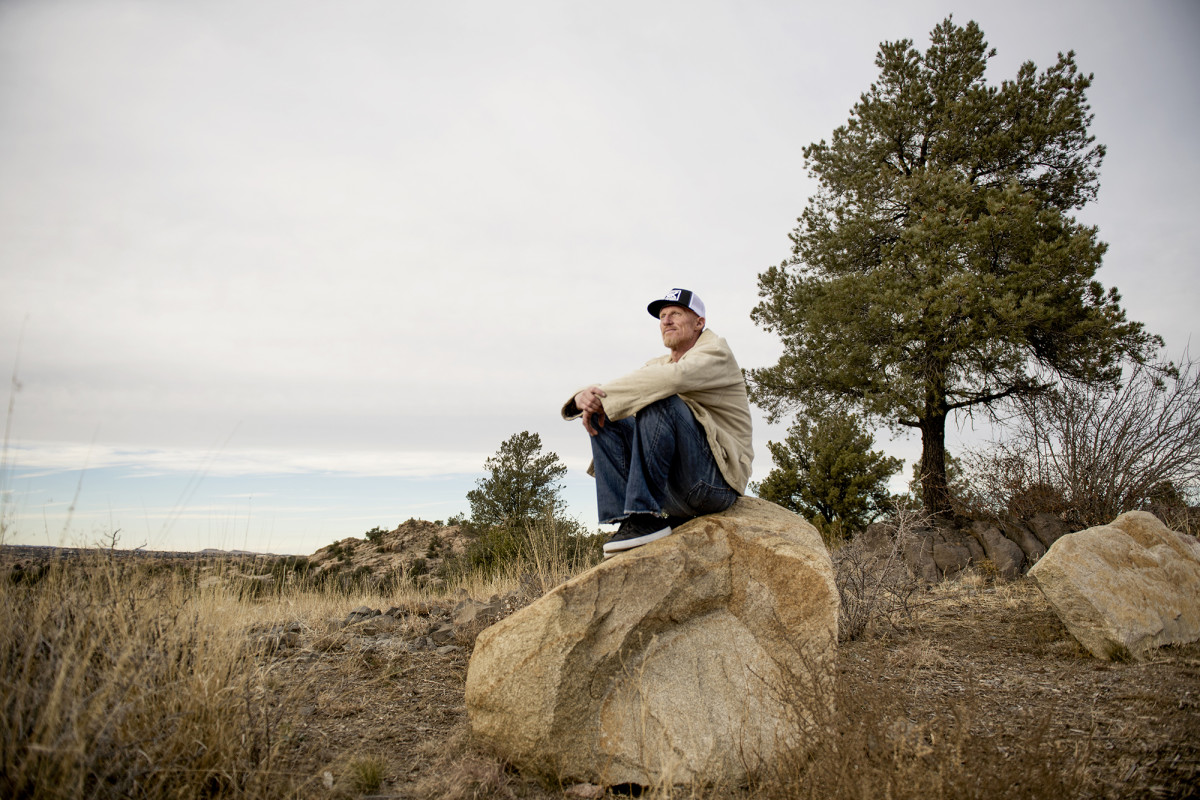
He feels trapped, and flies into a rage, screaming hurtful comments. He is Marv without the violence. He arranges for a friend to buy him a plane ticket.
"Take me to the airport," he says.
Ali drives Todd to Sky Harbor International. He checks in and goes to the gate, ready to get the hell away from Arizona.
The flight is delayed.
He sits. He thinks. His children are home, in Orange County, but what else is there? The ride he has arranged for after he lands is not safe for his sobriety. From the moment he gets home, he will be in trouble again.
He texts Ali: I'm sorry. He still wants to go home. But the flight is still delayed.
He thinks some more.
He calls Ali, tells her he feels alone, and says what he has been scared to say so many times: "I need help."
She drives to the airport. He is waiting outside baggage claim with his guitar and his art bag; his luggage is still on the plane. With Ali driving and Todd riding shotgun, he slumps into a ball and cries. When they arrive at her house, she has to help him out of the car.
Todd closes his eyes and remembers.
Trauma therapy, Prescott Valley, late 2018: He is diving into the deepest part of the lie, an emotional trench so far below the surface that he didn't even know it was there.
This summer, he understood intellectually that his childhood trauma led to adulthood addiction. But now he sees the emotional effects. He remembers how he felt when his father called him Timmy, after Tiny Tim, the physically disabled boy in A Christmas Carol. He tells his therapist, Sherri Sharkins, a story he had never told anybody, about the time Marv ripped MARINOVICH off his jersey and told him, "You don't deserve ever to wear this name on your back," which was especially devastating because one of Todd's friends saw it.
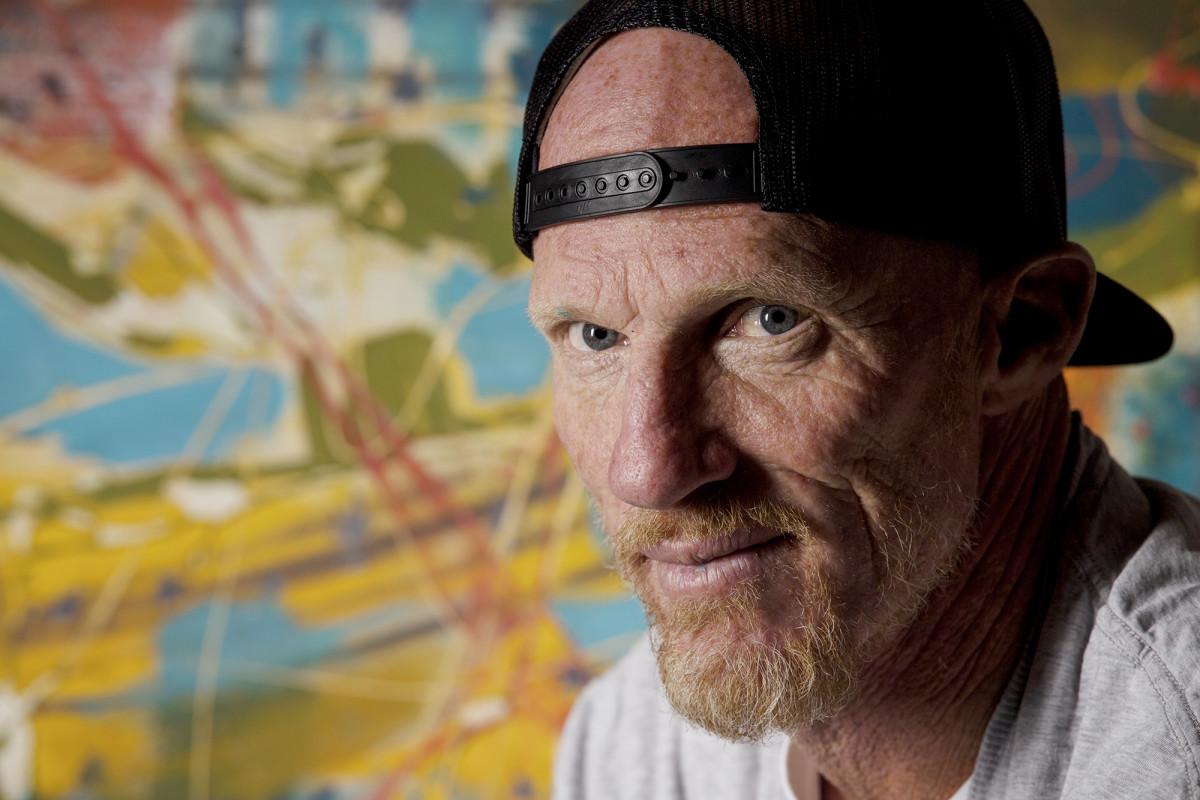
He remembers, for the first time in years, being home after school, wondering how many minutes of fun he had before his father pulled up in his beige Oldsmobile.
He remembers wanting to snuggle with his father and never doing it, and hoping his parents would say "I love you" but never hearing it. But when Todd looks back, he does not just see nine-year-old Todd. He sees nine-year-old Baron.
He wonders how a father could ever make a son feel the way he felt every day.
Todd lifts his chin and relaxes and talks, and then it emerges, out of the ocean, pulsating, sending a tingling sensation through his hands. "The only thing I can describe," he says, "is like a jellyfish moving."
Sharkins calls it a "life force—the trauma lives in the body." She has a clinical explanation, involving ideas and identity distortions emerging from Todd's prefrontal cortex, and emotions emerging from the body and the subcortical areas of the brain, but Todd is not a med student. He is an artist. "I'm going to paint this thing," he says. "I can't describe it, but I can paint it."
He toggles between adult consciousness and child consciousness, his adult self-comforting the child who was not comforted. "Do you think I want to abuse that me?" he says. "I don't."
If you see the central challenge of Todd's adult life as getting clean, his recent relapse was another failure. But Todd calls it "much-needed." He is sure he doesn't need another one: "I kind of have an intuitive thought that this is it."
He could still relapse at any moment. This is the addict's rope walk. But he has stopped believing the lie.
The artist opens his eyes and pictures the life he wants: nature instead of traffic, an art studio where he paints for himself and for clients and feels good about both, ski vacations with Ali and her kids, Baron and Coco at his side for all of it, awash in their father's love. Todd Marinovich has been alone for 49 years, and that's long enough.
